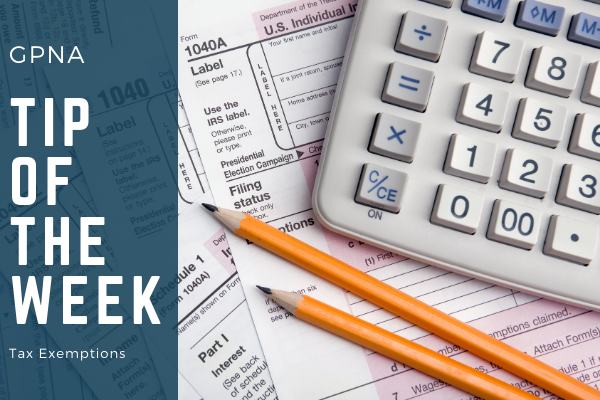Never take your tax exempt status for granted, and make sure that you always follow the proper procedure for appealing a denial of your tax exempt status. In Wings As Eagles Ministries, Inc. v. Oglala Lakota County, the South Dakota Supreme Court considered an appeal involving a county board of equalization’s denial of a property tax exemption. In this case, Wings As Eagles Ministries, Inc. was a non-denominational Christian organization that operated on the Pine Ridge Indian Reservation. Wings As Eagles Ministries, Inc. had been granted a property tax exemption by the county board of equalization since 2005. However, the board denied Wings As Eagles Ministries, Inc.’s application for property tax exemption for the 2014 tax year. The organization then failed to apply for an exemption for the 2015 tax year. The organization did not appeal the decision to the circuit court, but instead filed an application with the commission for an abatement of its taxes for 2014 and 2015 under a South Dakota statute which authorizes a county commission to abate a tax if the property is exempt.
In its decision, the South Dakota Supreme Court looked to the South Dakota Constitution, which authorizes tax exemptions for property used for religious and charitable purposes. The Court then noted that this may be effectuated through proper procedures set forth by the South Dakota Legislature. The procedures established by the South Dakota Legislature provide that if an organization receives an adverse determination, it may appeal that decision by appealing to the Office of Hearing Examiner and then to the circuit court, or by appealing directly to the circuit court. Alternatively, the organization may pay the taxes and then recover those taxes through the abatement procedure contained in the South Dakota Codified Laws. The abatement procedure allows a county commission to refund property taxes when a tax payer claims that the assessment or tax is invalid because the property itself is exempt from the tax.
The South Dakota Supreme Court determined that Wings As Eagles Ministries, Inc. could not prevail on its abatement claim. It first looked at the commission’s determination that the property was not exempt. That determination was not appealed by Wings As Eagles Ministries, Inc. and therefore became a final decision. Because it was a final decision that the property was not exempt, it therefore could not be subject to the abatement procedure, which would only allow the refund of the taxes if the property was exempt from the tax. Because Wings As Eagles Ministries, Inc. failed to appeal the determination that it was not exempt from taxes, it was unable to employ the abatement statute.
This Tip of the Week comes from Wings As Eagle Ministries, Inc. v. Oglala Lakota County, 2021 S.D. 8, issued by the South Dakota Supreme Court on February 10, 2021. This opinion demonstrates the need to pay particular attention to procedural requirements. Therefore, it is advisable that whenever you receive an adverse determination from a county board or other regulating body, you seek the advice of an attorney as to how to properly proceed so that you do not inadvertently lose the ability to recover.


